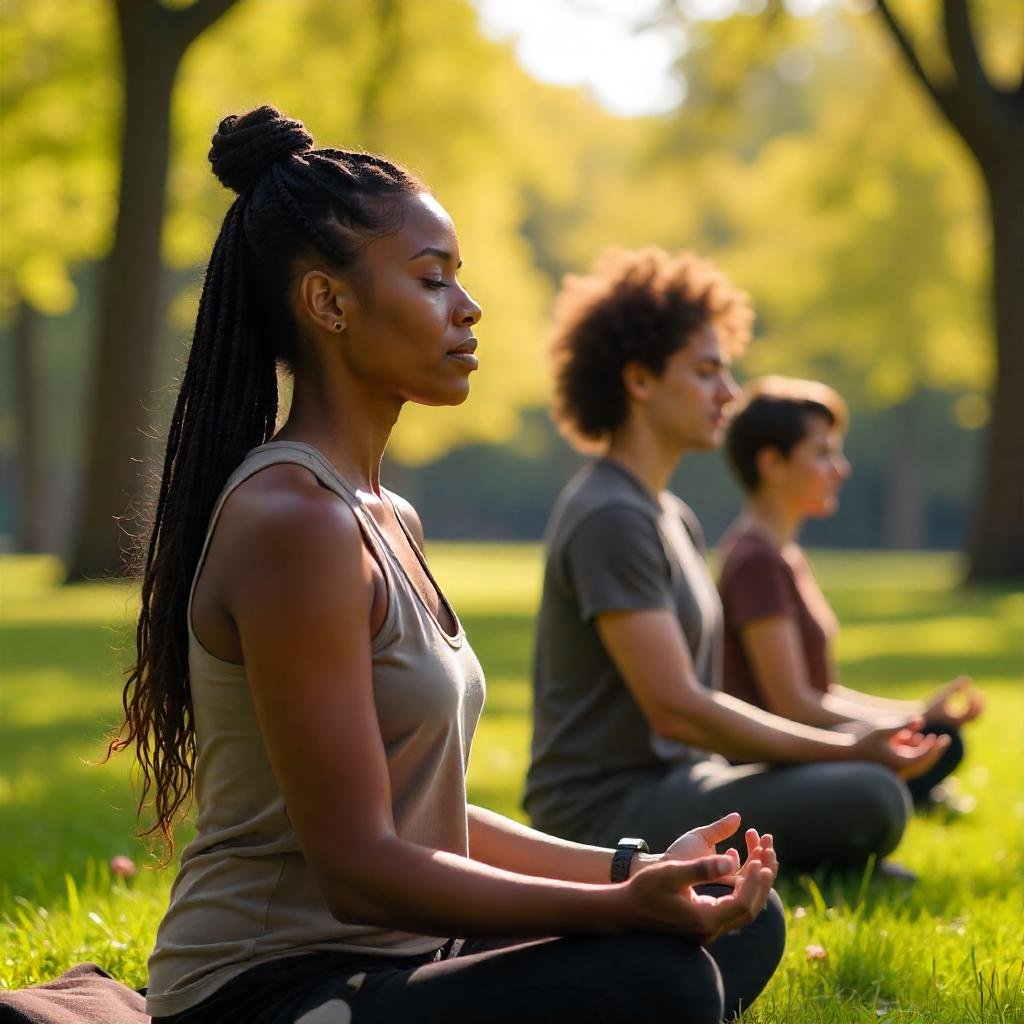Stress has become a common part of modern life. Whether it’s due to work pressures, personal challenges, or the hustle and bustle of daily routines, stress can take a toll on our mental and physical health. Fortunately, there are many ways to reduce stress naturally without relying on medication or quick fixes. By incorporating healthy lifestyle changes, mindfulness practices, and relaxation techniques, you can manage and even eliminate stress from your life. In this article, we’ll explore some of the most effective natural ways to reduce stress and improve your well-being.

Understanding Stress and Its Effects
Before diving into the strategies for reducing stress, it’s important to understand what stress is and how it affects your body. Stress is your body’s natural response to challenging or threatening situations. When you’re stressed, your body releases hormones like cortisol and adrenaline to prepare for “fight or flight.” While this response is helpful in emergencies, chronic stress can have negative effects on your physical and mental health, including:
- Increased risk of heart disease and high blood pressure
- Weakening of the immune system
- Trouble sleeping or insomnia
- Difficulty concentrating or making decisions
- Anxiety, depression, and mood swings
Chronic stress can also contribute to unhealthy behaviors such as overeating, smoking, or excessive drinking. Therefore, learning how to manage stress naturally is crucial for overall health and well-being.
1. Practice Mindfulness and Meditation
One of the most powerful ways to reduce stress naturally is through mindfulness and meditation. These practices help calm the mind, promote relaxation, and enhance emotional resilience.
Benefits of Mindfulness and Meditation:
- Reduces the production of stress hormones like cortisol
- Improves focus and concentration
- Enhances emotional regulation
- Increases self-awareness and acceptance
How to Practice Mindfulness and Meditation:
- Mindful Breathing: Focus on your breath and practice deep breathing for a few minutes each day. Inhale slowly for four counts, hold your breath for four counts, then exhale for four counts. This simple practice can help reduce tension and bring your focus to the present moment.
- Guided Meditation: Use apps like Headspace or Calm for guided meditation sessions that focus on relaxation, mindfulness, and stress reduction.
- Mindful Walking: Take a walk outside and pay attention to the sensations in your body, the sounds around you, and the rhythm of your breath.

2. Exercise Regularly
Physical activity is one of the most effective natural stress relievers. Exercise helps reduce stress by boosting endorphins, the body’s natural mood elevators. Additionally, it can help regulate the hormones associated with stress, such as cortisol.
Benefits of Exercise for Stress Reduction:
- Improves cardiovascular health
- Improves mood and boosts energy levels
- Reduces feelings of anxiety and tension
- Enhances sleep quality
Types of Exercise for Stress Reduction:
- Yoga: Yoga combines mindful breathing, stretching, and movement to help release physical tension and calm the mind. It’s particularly helpful for stress reduction as it encourages relaxation and mindfulness.
- Walking or Running: Even a 20-minute brisk walk in nature can work wonders for reducing stress. The physical activity combined with exposure to natural surroundings helps clear your mind and boost your mood.
- Strength Training: Lifting weights or doing resistance exercises helps release tension and build physical strength, which can contribute to mental resilience.

3. Get Enough Sleep
Sleep is essential for both mental and physical recovery. Chronic sleep deprivation can increase stress levels, reduce emotional regulation, and impair cognitive function. Ensuring you get enough rest each night can significantly reduce your stress levels and improve your overall well-being.
How to Improve Sleep for Stress Reduction:
Establish a Sleep Schedule: Go to bed and wake up at the same time each day to regulate your circadian rhythm and improve sleep quality.
Create a Relaxing Bedtime Routine: Establish a calming pre-sleep ritual, such as reading, meditating, or taking a warm bath, to signal to your body that it’s time to wind down.
Limit Screen Time: Avoid electronic devices such as phones, tablets, and computers at least 30 minutes before bed, as the blue light can interfere with your ability to fall asleep.
4. Eat a Balanced, Nutrient-Rich Diet
What you eat can have a significant impact on how your body responds to stress. A balanced diet that includes nutrient-rich foods can help regulate stress hormones, improve mood, and support overall health.
Stress-Reducing Foods:
Herbal Teas: Herbal teas like chamomile, lavender, and valerian root have calming properties that can help reduce stress and improve sleep.
Complex Carbohydrates: Whole grains, legumes, and vegetables can help regulate blood sugar and promote feelings of well-being by boosting serotonin levels.
Omega-3 Fatty Acids: Fatty fish like salmon, flaxseeds, and walnuts contain omega-3s, which can reduce inflammation and lower the risk of depression and anxiety.
Magnesium-Rich Foods: Magnesium helps regulate stress hormones and relaxes the muscles. Include magnesium-rich foods such as spinach, almonds, avocados, and bananas in your diet.

5. Connect with Nature
Spending time outdoors and connecting with nature is a simple yet powerful way to reduce stress naturally. Research has shown that spending time in green spaces or near water can lower cortisol levels, reduce mental fatigue, and promote relaxation.
Ways to Connect with Nature:
- Take a Walk in the Park: Even a short walk in a natural setting can have an immediate calming effect.
- Gardening: Digging in the dirt and caring for plants can reduce anxiety and increase feelings of calm.
- Outdoor Exercise: Activities like hiking, biking, or swimming in natural settings are not only great for fitness but also help reduce stress and promote mental clarity.
6. Practice Deep Breathing Exercises
Deep breathing exercises are a quick and effective way to activate the body’s relaxation response. By focusing on slow, deep breaths, you can lower your heart rate and calm your mind.
Simple Deep Breathing Techniques:
- Box Breathing: Inhale for four counts, hold for four counts, exhale for four counts, and hold again for four counts. Repeat for several minutes.
- 4-7-8 Breathing: Inhale for 4 counts, hold your breath for 7 counts, and exhale slowly for 8 counts. This technique promotes relaxation and helps calm the nervous system.
7. Socialize and Build Supportive Relationships
Having strong social connections can act as a buffer against stress. When you share your feelings, experiences, and challenges with others, it can help you feel understood and supported. Positive interactions and emotional support can lower cortisol levels and increase feelings of happiness and safety.
Tips for Building Social Support:
- Reach Out to Friends or Family: Don’t hesitate to call or meet up with loved ones. Talking to someone you trust can help you gain perspective on stressful situations.
- Join a Support Group: Consider joining a group of like-minded people who can offer mutual support and understanding.
- Engage in Social Activities: Participate in activities or hobbies that bring joy and provide opportunities for positive social interaction.
Conclusion
Stress is an inevitable part of life, but learning how to reduce stress naturally can help you regain control and maintain balance in your life. By incorporating mindfulness practices, regular exercise, proper sleep, a healthy diet, and spending time in nature, you can significantly reduce the impact of stress on your mind and body. Remember that stress management is a journey, and even small, consistent changes can lead to long-term benefits. Embrace these natural strategies and take proactive steps toward a calmer, healthier life.








2 thoughts on “How to Reduce Stress Naturally: Proven Strategies for a Calmer, Healthier Life”